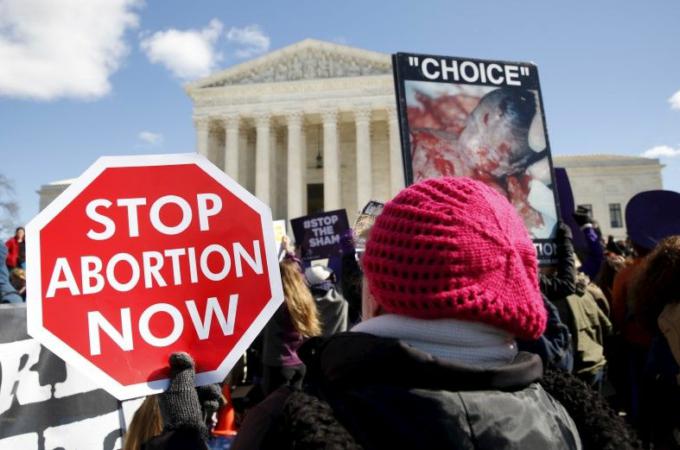Coercing our conscience
Imagine the government ordered Ford dealers to post signs telling prospective auto buyers to check out Chevrolet or required vegan restaurants to give diners menus listing the offerings at neighborhood steakhouses as well as vegan fare--what would you say to that? More often than not, I suspect, you'd say the government had overstepped the line and ought to butt out.
Fantastic? The Supreme Court will soon be hearing arguments in a case involving a not dissimilar situation in California, where the state obliges pregnancy counseling centers seeking to encourage women not to have abortions to post the following notice:
"California has public programs that provide immediate free or low-cost access to comprehensive family planning services (including all FDA-approved method of contraception), prenatal care, and abortion for eligible women. To determine whether you qualify, contact the county social services office at [phone number of the local office]."
The law tasking as many as 200 pregnancy counseling centers with this burden--it's called the Reproductive FACT Act--leaves no doubt about what it wants: a fully visible notice on paper no less than 8.5 inches by 11 inches printed in no less than 22-point type.
"Information is power," said California Attorney General Xavier Becerra, who will defend the act before the Supreme Court early next year. Representing the National Institute of Family and Life Institutes, which supports 110 crisis pregnancy centers in the state, are lawyers from a group called the Alliance Defending Freedom. The case (National Institute of Family and Life Advocates v. Becerra) will come before the court near the 45th anniversary of the Roe v. Wade decision of 1973 in which the Supreme Court abruptly legalized abortion nationwide.
The Alliance Defending Freedom also represents the plaintiff in another case about religious free speech rights that the Supreme Court will hear December 5 (Masterpiece Cakeshop v. Colorado Civil Rights Commission). The dispute involves a baker in suburban Denver named Jack Phillips, found guilty of violating Colorado's anti-discrimination law for declining to bake a wedding cake for two men because he opposes same-sex marriage on moral grounds and couldn't in good conscience contribute to its celebration.
In both cases, the plaintiffs argue that their First Amendment free speech rights are violated by state actions that require them to take actions that lend support to something--same-sex marriage in the Colorado baker's case, abortion in the case of the California crisis pregnancy centers--contrary to their moral convictions. Lower courts have ruled in favor of the state in both.
In October, though, a California Superior Court judge in a separate case granted an injunction against enforcement of the FACT Act. In a ruling saying "compelled speech" is tolerable only within "reasonable limitation," Judge Gloria Trask said the law "compels the clinic to speak words with which it profoundly disagrees when the state has numerous alternative methods of publishing its message."
In conflicts like these, people looking for larger trends see the coercive dynamic of contemporary secular liberalism according to which state power is rightly used as an instrument for imposing and enforcing its ideological dictates--especially, as is the case here, when these concern idols of liberal ideology like abortion and same-sex marriage.
Now the coercion is increasingly occurring at the expense of religious believers who have chosen to live as their consciences tell them they should. It is by no means clear where the Supreme Court, which over the years has done so much to advance this profoundly illiberal cause, will come down in this argument.
- Russell Shaw is the author of more than twenty books. He is a consultor of the Pontifical Council for Social Communications and served as communications director for the U.S. Bishops.



















